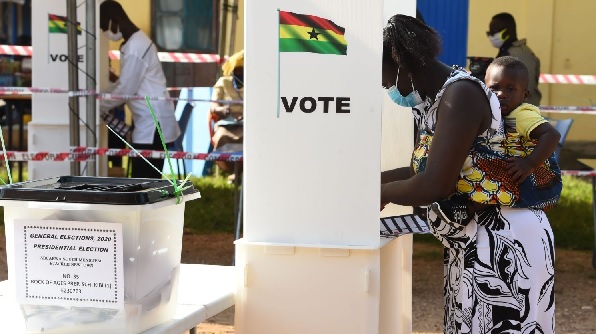
Changing election date: Hasten slowly
The vice-president of the Ghana Academy of Arts and Sciences, Professor Joseph Atsu Ayee, has waded into the controversy about the date of presidential and parliamentary election due later this year.
Prof. Ayee is a renowned political scientist, lately of the University of Ghana, Legon, who recently delivered a lecture entitled: “Politics amid global uncertainties: Options for building a resilient society” at the third annual colloquium of the Political Science Department of the University of Education, Winneba.
Prof. Ayee said the Electoral Commission (EC) must be “flexible in considering certain reforms key to the smooth conduct of the December 7 elections”.
His fear is that if the date of the elections is not agreed on consensually by all of the “major stakeholders”, then the elections would be “contentious”, perhaps causing “chaos in the country”.
The EC coordinated a meeting of the Inter-Party Advisory Committee (IPAC) on Monday, January 29 in Accra to deliberate on the change of the date for the 2024 general election.
The main purpose of the meeting was to discuss the EC’s proposal to move the election date from the traditional December 7 to November 7 and also make it a holiday.
Political parties at the meeting included the New Patriotic Party (NPP) and the National Democratic Congress (NDC),as well as the Convention People’s Party (CPP),the People’s National Convention (PNC) and the Liberal Party of Ghana (LPG).
The EC maintained that it has the capacity to complete necessary processes to effect the change of date. Some of the political parties at the IPAC meeting were unsure that such a move – just nine months before the elections, which would be rescheduled for November 7 – was achievable in the relatively short amount of time available to the EC.
The NPP was reported to be amenable to change the date to November 7 – if the EC can assure Ghanaians that there would be smooth transition to the November 7 date. The NDC was sceptical that November 7 was not feasible given the short time before the polls.
According to the EC, all parties agreed in principle that the processes for the change in election date could begin after
the 2024 election and be applied to the 2028 election.
Broader discussion
It is all very well getting the agreement of the political parties on changing the elections date, a day, don’t forget, which has been in place since the return to democracy in 1993,that is, 31 years ago.
As Prof. Ayee noted in his speech, however, what is needed is a wider – indeed, a national – discussion with all “major
stakeholders”, including the voters ,on whether the current December 7 date should remain.
A key issue is the handover from one government to another after the elections. If this takes place after a run off, the December 7 date leaves very little time to make all necessary arrangements before handover day: January 7.
What then is to be done?
Given the fact that societal and political tensions develop in any country as elections day nears, and Ghana is no exception in this regard, then it seems obvious that care, foresight and extensive planning are crucial before any change of elections date.
It is not beyond the realms of possibility that if the change of date is imposed from above without due consultation with a much wider constituency, then there is a great chance of enhanced tension. What if there is a very tight race for the presidency, with the outcome hinging on just a few votes? What would the response of the – narrowly – defeated presidential contender be?
He might well claim that the EC botched the arrangements and as a result he was not elected. This in turn would encourage the anger of some supporters of the – narrowly – defeated candidate and the result might be too horrible to contemplate.
Advice
My advice: Stick with December 7 for the 2024 elections. After all, everyone is used to that date; it has become traditional to vote on that day.
If there is a run off for the presidency then, as in the past, all must be done in time to ensure a smooth transition from one government to another.
Don’t risk a hasty jump to a new date without adequate, necessarily prolonged, national consultation, reflection and development of a doable timetable. Ghana’s democracy is too precious, and maybe increasingly fragile, to risk any hasty moves which might raise the chances of political turmoil.
The writer is a Professor of Politics, London Metropolitan
